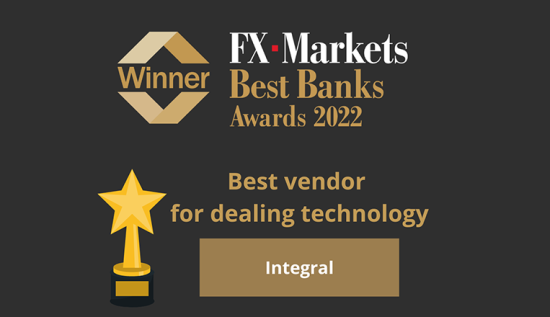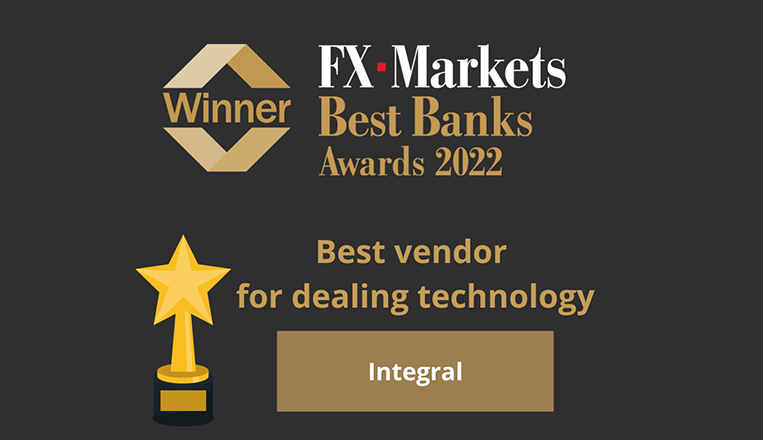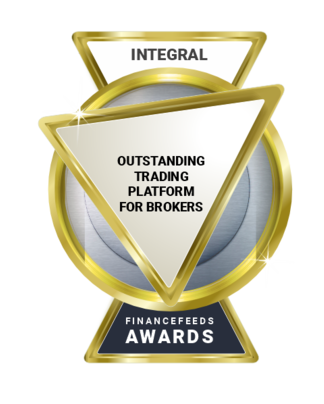Integral saw a significant uptick in demand for its cloud-based services as market participants’ imperative to upgrade their technology gained urgency last year
FX participants are under increasing pressure to deliver a great user experience to their customers, and are trying to compete and win while increasing revenue and profitability. When you then add the return of market volatility, the pressure intensifies as they find their legacy technologies are no longer fit for purpose.
These trends over the past few years have crystallised the need to acquire new trading and dealing technology in the FX market that was initially sparked by Covid-19 pandemic-induced shifts in working arrangements.
“When markets are volatile, the need for technology that is reliable, stable, proven and [sourced] from a trusted provider is all the more important,” says Vikas Srivastava, chief revenue officer at Integral. “The urgency for market participants to upgrade their technology stacks increased substantially in 2022. Firms that might have previously postponed replacing their technology during the pandemic felt the urgency had returned, and they needed access to technology that could give them the reliability and flexibility they were looking for.”
The only viable alternative to achieving this and quickly integrating it into tech stacks was to use cloud-based solutions that can be configured to each market participant’s unique requirements. As an early proponent of the cloud, and the first in the FX industry to offer its clients highly bespoke cloud-based solutions, this urgency to upgrade played to the strength of technology provider Integral.
With the onset of the pandemic, the once-prevalent reluctance to adopt cloud services quickly withered away and Srivastava says that, in 2022, there was a significant uptick in the number of requests for proposals for tech upgrades worldwide, many of which required dealing technology to be delivered in the cloud.
“Market participants now understand the benefits of the cloud that we’ve been talking about for years,” says Srivastava. “When the pandemic hit and everybody had to work from home, those who were already using cloud technology were able to work seamlessly. Those with on-premise-only solutions found it difficult to do business and retain their clients because they themselves weren’t on-premise.”
The advantages of the cloud that Integral perceived in the early days of the technology have played out over time with great effect. While the pandemic demonstrated how apt cloud-based technology is in a world where working from anywhere is now the norm, it has also proved its worth in helping market participants automate large swathes of workflow functions, as well as improving the user experience for increasingly demanding clients.
Equally importantly, the cloud also opens up a host of opportunities to firms in the wider FX space, especially medium and smaller-sized companies that would not normally be able to access or afford the solutions available to the larger players in the market. Because of the way modern cloud technology is available – in a modular, extensible way and via application programming interface (API) – it has revolutionised the way people acquire technology and integrate it with their internal and their customers’ systems. Srivastava firmly believes the ability to deliver e-FX services via easy-to-integrate APIs is a game-changer and will accelerate cloud adoption.
One client segment that has enthusiastically embraced cloud-based technology is payment companies. As with banks and brokers, these payment companies need the type of technology Integral offers to access the market, manage market risk and create and distribute prices to customers.
Medium and smaller-sized market participants in the Asia-Pacific region make up another client segment that was very active in 2022 for Integral, particularly after the tech firm co-located its services at the SG1 data centre in Singapore earlier in the year. “Large market-makers and market-takers are now trading from Singapore, but the big part of the market – what we call the real utilitarian part – are really the regional banks, the brokers and other market participants that serve end-clients in the region. These utilitarian players need technology to be able to serve their customers electronically, and that’s where we come in.
“Large market-makers and market-takers are now trading from Singapore, but the big part of the market – what we call the real utilitarian part – are really the regional banks, the brokers and other market participants that serve end-clients in the region. These utilitarian players need technology to be able to serve their customers electronically, and that’s where we come in.
“By deploying our technology stack in Singapore we enable regional banks and brokers to access the market and serve their customers electronically. And we are the first end-to-end software-as-a-service [SaaS] platform to have done so in the country.”
With a growing number of use cases for Integral’s SaaS technology, the firm recently rebranded to be ready for whatever the future holds. One thing it is sure of is that the future is cloud- and API-enabled.
Article originally published by FX Markets and can be found here.



